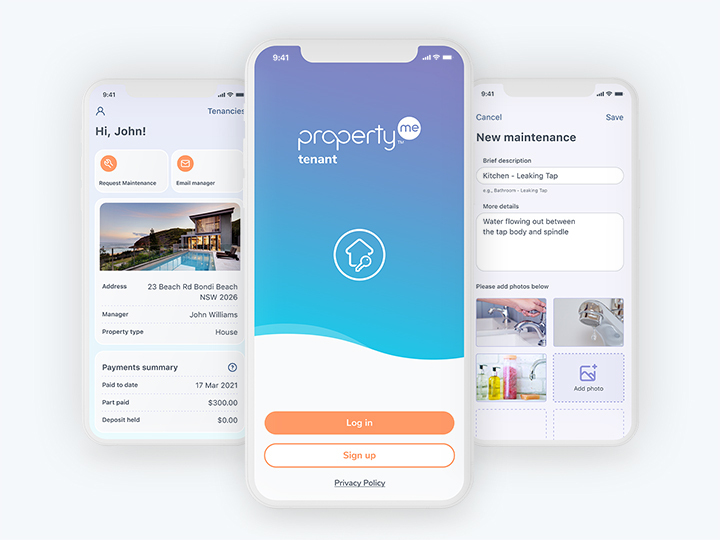July 12th, 2022
10 tips to deal with challenges and conflict as a Property Manager
Property Management
Property Management

It’s long been said that communication is the key, and this particularly rings true for property management. Whether it’s owners, suppliers, coworkers, or tenants, it’s imperative to be consistently working on your communication style so that your work is successful and enjoyable.
It’s no secret that tenants are arguably the most important part of the equation when it comes to property management. It can be daunting gaining new tenants or letting go of old ones, with the uncertainty of change being ever-present. With this in mind, it’s important to establish your communication style from the get-go to mitigate any confusion or confrontation and make your experience a positive one. Therefore, we’ve put together a list of the top five ways to create open communication with your tenants.
We all have different requirements and wants in life, and this is especially true when it comes to our homes. Did you know that on average we spend 62% of our waking hours in our homes? Therefore, it’s essential that we feel comfortable, safe, and relaxed in our homes. This can mean that when it comes to searching for a place to live or dealing with concerns in our current residences, we can often be less inclined to compromise.
Taking this into account allows you as a Property Manager to empathise with the journey of your tenants and put yourself in their shoes. When you do this you are able to actively listen, and hear what your tenants are saying. Oftentimes as we live in a busy world we listen passively due to multitasking or increased stress and don’t accurately soak in the information we are being told. This can cause miscommunications and confrontations down the road.
Active listening includes four main steps that you must be cognisant of when engaging in a meaningful conversation. The first step is to tune out the noise of the day as hard as that may be during busy periods. This sounds obvious, but as we are all trying to work more efficiently it’s a step we often forget. Secondly, provide feedback and reflect on what you’ve been told — this allows your tenant to feel heard and allows you to summarise the information you’ve been given. Thirdly, avoid interrupting or passing judgement as this can stop your tenant from speaking freely and authentically. Lastly, respond honestly providing feasible timelines, solutions and feedback for your tenant’s requests. Being honest and telling the truth goes a lot further than simply telling someone what they want to hear.
Communication frameworks are great for two main reasons. Firstly, they allow you to speak to each tenant equally and professionally, providing you with a wealth of skills to draw on during difficult conversations. Secondly, they allow your office to create a streamlined model of communication that ensures overall customer satisfaction and professionalism.
So what exactly is a communication framework? A communication framework is an actionable document that outlines the tone and language used when speaking to different people within a business. A communication framework can be made business-wide, or for yourself. In order to build a communication framework, it’s imperative to sit down and decide the impression you would like tenants to gain from you through your communication style. From here you can create templates and examples to draw on during more difficult-to-navigate situations.

It’s often said that in life one should pick their battles, and that’s especially true in a professional sense. Going the extra mile for your tenants is a great way to create customer satisfaction and retention, by providing incentives and allowing for open lines of communication. However, we’re all human at the end of the day with lives outside work. So it’s important to set clear boundaries with your tenants and guide them on how to communicate with you. This is beneficial to you as it reduces stress and allows you to have a work-life balance, however it also benefits your tenants as it squashes any confusion or anxiety.
Here at PropertyMe, we like to make communication as simple as possible as we’re aware that time isn’t always on your side as a Property Manager. We offer many features that allow for ease of communication, these include Message Automation, Inbound SMS and our Tenant Access and App.
Our Message Automation feature includes a suite of ready-made message templates, allowing you to free up time and communicate professionally to tenants. These templates include emails, letters and SMS messages and allow personalisation. Our Inbound SMS feature allows you to access both your emails and SMS messages from one unified inbox within PropertyMe, to prevent any missed messages or miscommunication. Lastly, our Tenant Access and App allows your tenants to get an in-depth look into the details of their tenancy as well as the ability to message you directly through the app. When used in, conjunction these features take the error and hassle out of communication.

Communication is directly affected by our stress levels, this can be seen when we’ve had a tough day and are a little more snappy with our family than usual. The same rings true in a professional environment, however, we often ignore and neglect to treat the route cause.
Making time for yourself whether it’s a five-minute meditation before coming into work or a half-hour walk after the day is done, is the best way to lower cortisol levels and provide mental longevity. So we encourage you to find a few moments in your day to spend with yourself, doing something that fills your cup!
So there you have it, our top tips for creating open communication with your tenants. Remember that you’re doing an amazing job, and we’re proud of you for all of the hard work you do. Let us know your thoughts by emailing [email protected]